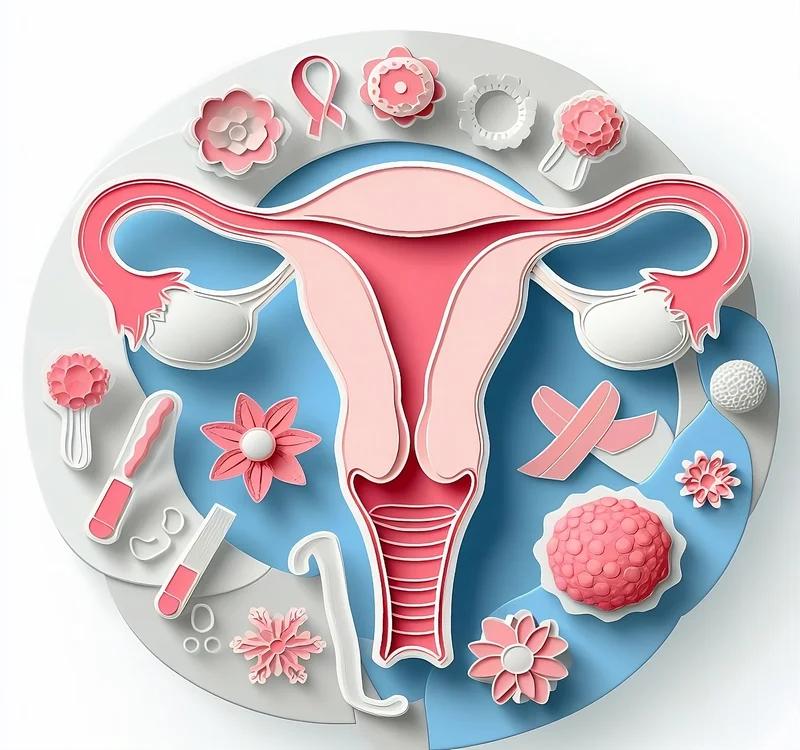Vaginal Health: 8 Essential Tips for a Healthy Vagina
May 25, 2024

Taking care of your vagina is an important part to prevent vaginal health problems. A healthy vagina is vital for comfort, reproductive health, and sexual activity. Proper vaginal care involves a range of practices that support its natural environment, helping to prevent discomfort and infections. Here, we focus on essential care tips to maintain vaginal health.
Table of Contents:
- What Do You Understand by Vaginal Health?
- Signs of a Healthy Vagina?
- What is Vaginal pH Balance and Why Is It Important
- Key Practices for Maintaining a Healthy Vagina
- Vaginal Hygiene and Sexual Intercourse
- Conclusion
- FAQs
What Do You Understand by Vaginal Health?
Vaginal health refers to the well-being of the vaginal area, ensuring it is free from infections, irritations, and imbalances. A healthy vagina has a naturally acidic pH and contains beneficial bacteria that help fend off infections and maintain a normal vaginal environment.
Signs of a Healthy Vagina?
Maintaining a healthy vagina involves understanding that the vaginal area can look and feel slightly different from person to person, but there are common signs of a healthy vagina:
Normal Discharge: A healthy vagina will produce a clear or slightly milky, odourless discharge, which helps to keep the vagina clean and moist.
Mild Scent: While vaginas have a natural scent, this smell should not be strong or unpleasant. A sudden change in odour can indicate an issue.
Comfort: There should be no persistent pain, itching, or burning sensations. Occasional minor discomfort might happen, but persistent symptoms require attention.
If you notice changes in discharge, odour, sensation, or any other concerns, it is wise to consult with a doctor.
What is Vaginal pH Balance and Why is it Important?
Vaginal pH balance is crucial for maintaining vaginal health. The pH level of a healthy vagina typically ranges from 3.8 to 4.5, which is slightly acidic. This acidity helps to keep the environment in check, preventing the growth of harmful bacteria while supporting the growth of beneficial bacteria, primarily lactobacilli. These good bacteria produce lactic acid, further maintaining the acidic pH and protecting against infections such as bacterial vaginosis and yeast infections.
Key Practices for Maintaining a Healthy Vagina
1.Practice Good Hygiene
To know how to improve vaginal health, it is important to understand the sensitivity of that area. This area is highly sensitive due to its thin, delicate tissues and its pH balance. Always use mild vagina wash or mild unscented soap with warm water. This helps remove excess discharge or sweat without disturbing the vaginal pH.
2. Avoid Douching
It is important to know that the vagina cleans itself and does not need extra cleaning like douching. Douching can actually do more harm than good. It washes away the good bacteria that protect the vagina, making it easier for infections to happen because the natural balance is disturbed.
3. Wear Breathable Clothing
When figuring out vagina care, opt for cotton underwear and avoid tight clothing to ensure good air circulation around the vaginal area. Cotton is breathable and effectively absorbs moisture, reducing the risk of yeast and bacterial growth. On the other hand, tight clothes can trap heat and moisture, creating an environment where harmful bacteria thrive.
4. Maintain a Healthy Diet
To improve vaginal health, focusing on a balanced diet is essential. Eating plenty of fruits, vegetables, whole grains, and foods rich in probiotics supports a healthy vaginal environment. Probiotics, such as those found in yoghurt and fermented foods, are particularly beneficial as they promote the growth of beneficial bacteria in the vagina, which helps prevent infections by maintaining an acidic pH that is hostile to harmful pathogens.
5. Stay Hydrated
An often overlooked aspect of vagina care is hydration. Drinking sufficient water each day is crucial for maintaining the natural cleansing processes of the body, which helps regulate vaginal secretions and ensure a healthy vaginal environment. Staying hydrated helps flush out toxins and supports overall vaginal health by keeping the mucous membranes moist and functional, reducing the risk of irritation and infection.
6. Practice Safe Sex
To keep your vagina healthy, using condoms is key. Condoms help prevent diseases that are passed through sex, which can harm vaginal health.
7. Change Sanitary Products Regularly
It is important to switch out tampons, pads, or menstrual cups often during your period. If these products stay in place too long, they can become breeding grounds for bacteria, which increases the risk of infections like bacterial vaginosis or toxic shock syndrome. Experts recommend changing these products every 4-6 hours to keep the area clean and prevent bacteria from building up.
8. Regular Gynecological Check-ups
Seeing your gynecologist regularly is crucial for maintaining vaginal health. These visits allow any potential issues to be caught and treated early, which can prevent them from becoming more serious. During these check-ups, your doctor can also offer advice tailored to your specific health needs. Regular screenings during these visits, such as Pap tests, can detect abnormalities that, if left unchecked, could lead to health problems like cervical cancer.
Vaginal Hygiene and Sexual Intercourse
Maintaining good vaginal hygiene is essential for a healthy sexual life and for preventing discomfort or infections during and after sexual intercourse. Here are a few things you need to be careful about:
Before Intercourse
Cleanliness: It is important to ensure both partners are clean before sex to avoid introducing bacteria into the vaginal area. Washing the genital area with mild, unscented soap and warm water can remove bacteria and reduce the risk of infections.
Hydration: Staying hydrated helps maintain natural lubrication, which is crucial for comfortable intercourse.
During Intercourse
Lubrication: Adequate lubrication is essential to reduce friction and prevent irritation or tears in the vaginal tissue. If natural lubrication is insufficient, a water-based lubricant can be used.
Protection: Using condoms not only prevents unwanted pregnancies but also reduces the risk of transmitting STIs and infections. They also help keep the vaginal pH balanced by reducing contact with semen, which is more alkaline.
After Intercourse
Cleaning: It is advisable to gently wash the genital area after sex to remove any lubricants, fluids, or debris. This helps keep the vagina clean and reduces the risk of bacterial growth.
Urinate: Urinating soon after intercourse helps flush out bacteria that may have entered the urethra during sex, reducing the risk of urinary tract infections (UTIs).
Dry Properly: After washing, make sure to dry the genital area gently but thoroughly. Moisture can create an environment conducive to bacterial growth.
Summary
In conclusion, it is important to know about the basic vagina hygiene in maintaining overall health. Maintaining vaginal health will help to avoid discomfort and the possibilities of developing infections while also improving the quality of both your sexual and overall well-being.
Frequently Asked Questions
A healthy vagina typically has clear or slightly milky, odourless discharge, no strong or foul odour, and does not experience discomfort, itching, or irritation.
Maintain vaginal health by practising good hygiene, avoiding douching, wearing breathable cotton underwear, and having regular gynaecological check-ups.
Keep the vagina fresh by washing daily with warm water and mild soap, changing underwear daily, and managing sweat effectively.
The vagina is sensitive due to its thin, delicate tissues and a high concentration of nerve endings, which make it susceptible to irritation but also vital for sexual pleasure.
The natural pH of a healthy vagina ranges from 3.8 to 4.5, which helps to protect against infections by inhibiting harmful bacteria growth.
The best feminine wash is one that is mild, unscented, and maintains the natural pH of the vagina. It is often recommended to use just warm water for most individuals.
Maintain vaginal health by washing gently with water, wearing cotton underwear, avoiding scented products, and changing sanitary items regularly. Stay hydrated and eat a balanced diet.
Improve vaginal health by using unscented hygiene products, wearing breathable clothing, and consuming probiotics. Routine gynecological check-ups are also essential.
Dry vagina is often caused by hormonal changes, especially a decrease in estrogen levels, which can occur during menopause, breastfeeding, or after childbirth. Other factors include certain medications and underlying health conditions.













